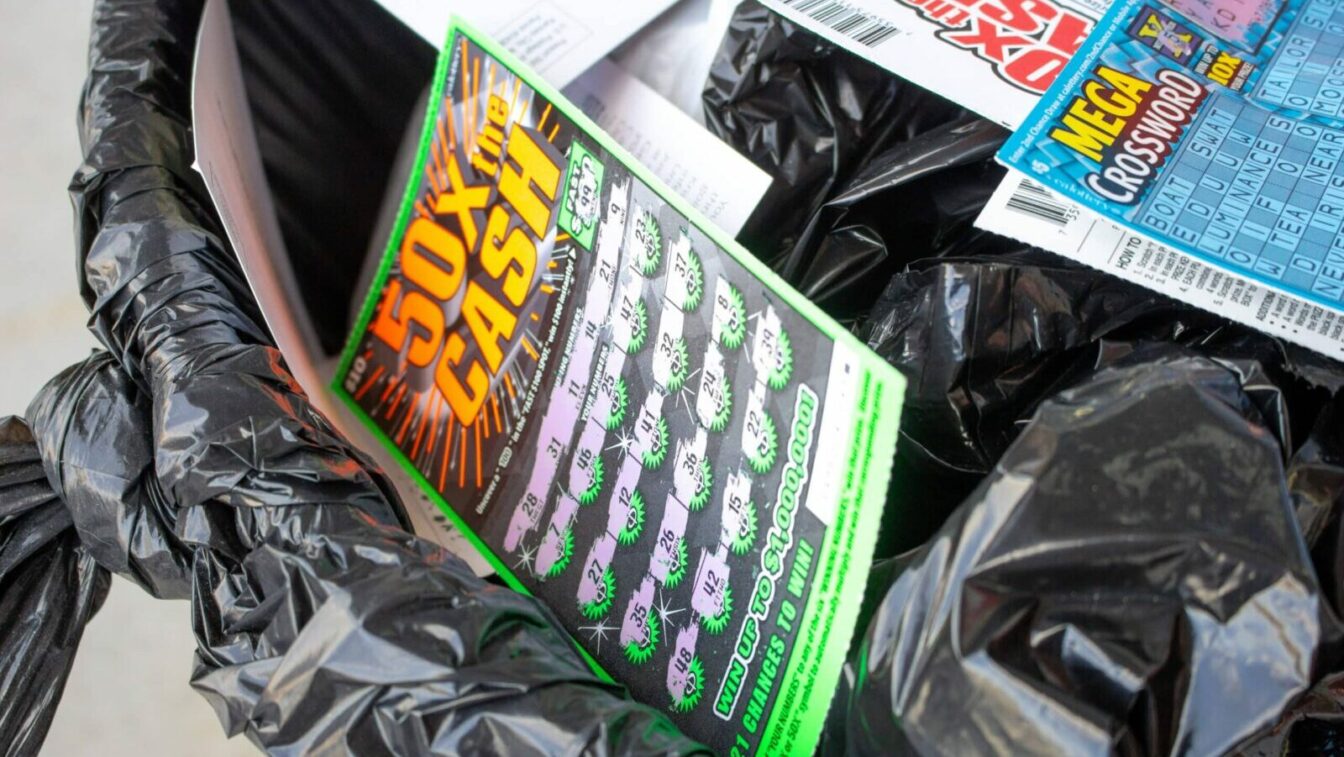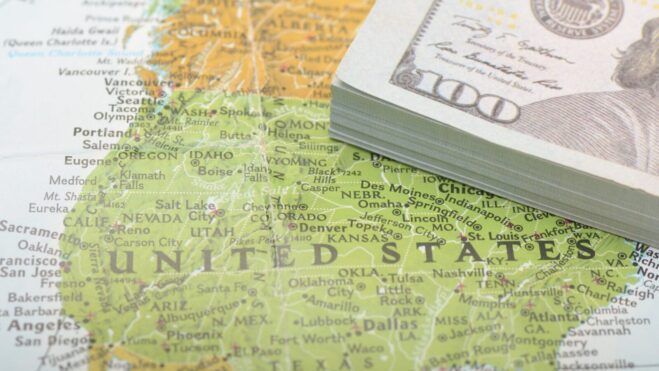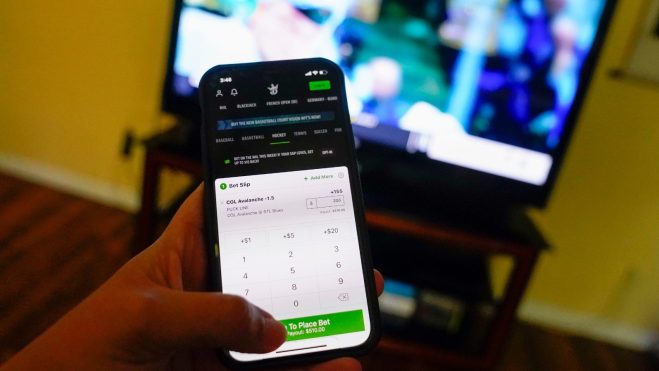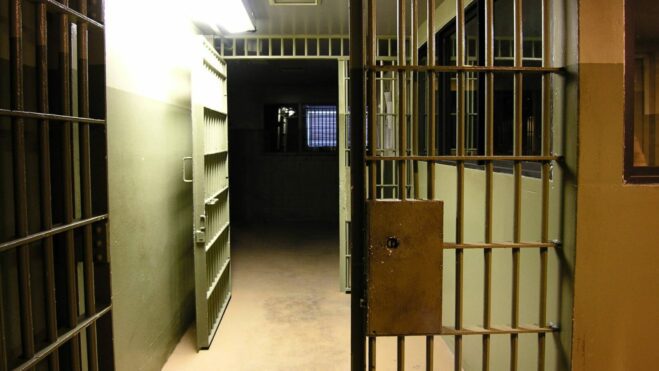What’s More Likely: The Perfect March Madness Bracket Or Winning The Lottery?
Which extreme longshot gives the average person their best chance of experiencing one shining moment as a gambler?
3 min
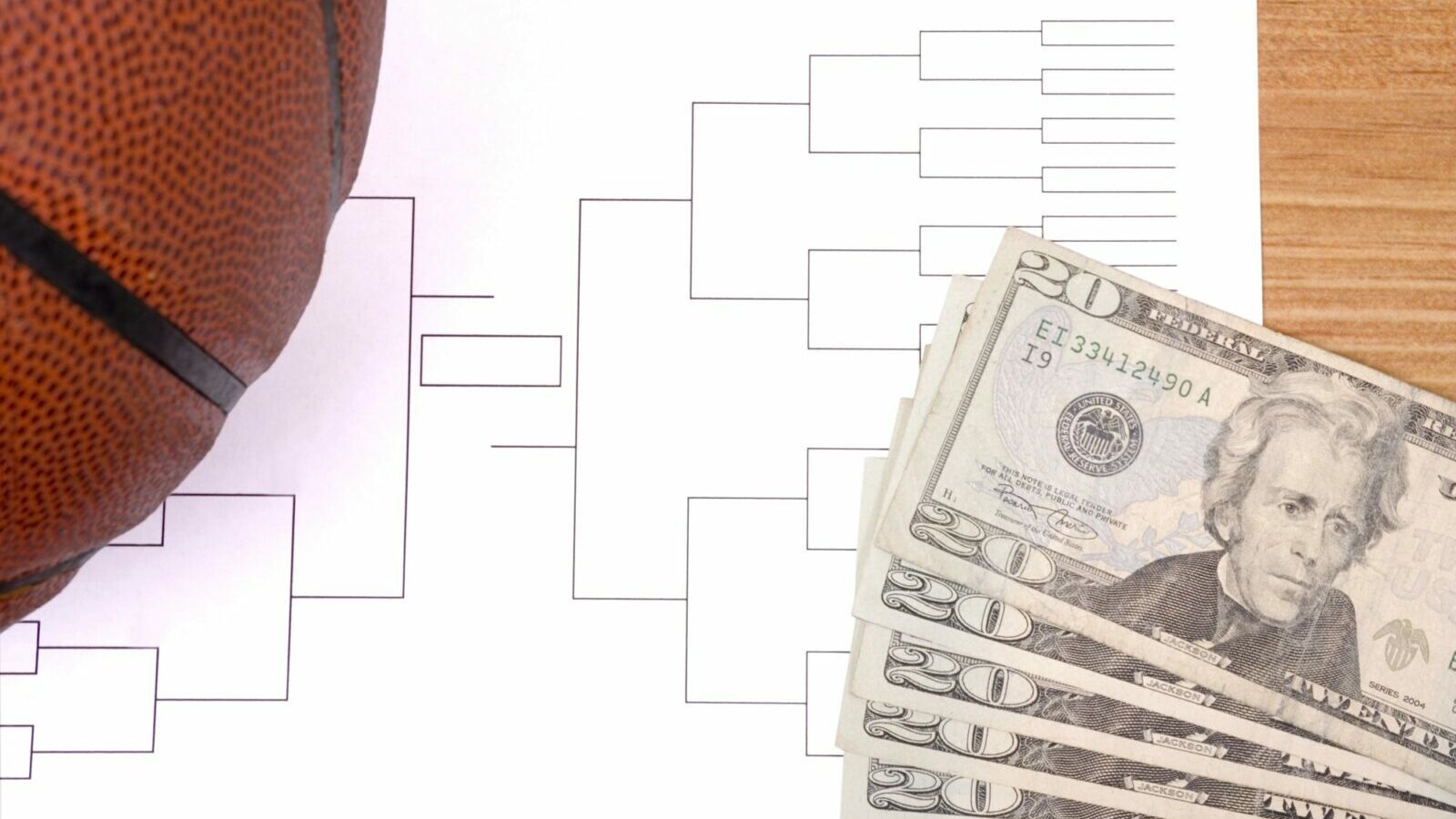
The lights don’t shine any brighter for college basketball players than during the March Madness tournament. Legends are immortalized, Cinderella stories are written, and crazy buzzer-beaters thrill the masses and dig daggers into the hearts of the losers.
It’s a month’s worth of chaos, and everyone wants a piece of the action. That’s why millions and millions of adrenaline junkies spend hours trying to pick the perfect bracket with the hopes of going 63-for-63 (no, the “First Four” doesn’t count for bracket-picking purposes), even though they would have a better chance of getting struck by lightning.
That said, would a person be better off buying a lottery/scratch-off ticket or trying to select the perfect March Madness bracket? Lottery Geeks took the time to crunch some numbers and provide answers to that and other related questions.
Fortune favors no one
No matter what the sports betting grifters will say, it takes far more luck than skill to complete a perfect bracket. You can’t just count on the betting favorite — the Connecticut Huskies, priced at +475 at bet365 — to win the entire tournament. Upsets happen.
Among Houston (most commonly priced at +650 at most books), Purdue (+750), and Tennessee (+1200), chances are a couple of those top teams will not go as far as most experts think. Every year, some of the best teams according to the betting odds fail to reach the Final Four, or even the Elite Eight. Something crazy always happens early in the tournament, and the majority of brackets are busted by the end of the round of 64.
To start our analysis, we asked ChatGPT what the odds were of having a perfect bracket after the round of 64. According to our AI friend, the odds are approximately 0.00000002328%, which would be 1 in 125,943.
Yes, Lottery Geeks knows math can be boring, but here’s how the bot got its answer — or “receipts,” as the kids like to say:
In the first round, 32 games are typically played (64 teams, with each game eliminating one team).
Assuming each game is a coin flip (which is not entirely accurate due to seeding and other factors but simplifies the calculation), the probability of correctly predicting the outcome of one game is 1/2 or 0.5.
Therefore, the probability of correctly predicting all 32 games in the first round is:
(1/2)^32 = 2^(-32) ≈ 2.328 x 10^(-10)
To convert 0.00079405% into a fraction in the format of “1 in X,” you would first convert the percentage to a decimal by dividing by 100:
0.00079405% = 0.0000079405
Then, take the reciprocal of the decimal to express it as a fraction:
1 / 0.0000079405 ≈ 125,943
So, 0.00079405% can be expressed as “1 in 125,943” as a fraction.
That’s still better odds than winning the Powerball jackpot, which is 1 in 292.2 million.
But here’s a closer point of comparison: A person in Iowa could drop $10 on a Money Madness scratch-off ticket, giving them odds of 1 in 125,843 of winning the grand prize of $100k.
On to the next round …
Odds be damned, let’s say a person’s bracket is still perfect after the round of 64. In the words of Axl Rose, Where do we go now?
ChatGPT calculates:
To calculate the odds of having a perfect March Madness bracket after both the first and second rounds, you would multiply the probabilities of each round together.
From the previous calculations:
After the first round: 2^(-32) ≈ 2.328 x 10^(-10)
After the second round: 2^(-16) ≈ 0.00001526
Multiplying these probabilities:
(2.328 x 10^(-10)) * (0.00001526) ≈ 3.556 x 10^(-15)
To express this probability in percentage form, we multiply it by 100:
3.556 x 10^(-15) * 100 ≈ 0.0000000000003556%
So, the odds of having a perfect March Madness bracket after the first and second rounds combined are approximately 0.0000000000003556%.
For those wondering, that’s 1 in 281,474,976,710,656. All those commas means we’re talking a little worse than 1 in 280 trillion.
Rather than trying to build a perfect bracket through the round of 32, a person may be better served by spending money on a state or provincial lottery ticket. Their chances of winning the grand prize are way better.
If someone living in Ontario, Canada, wants to test their luck, they could buy a Lotto 6/49 ticket and have a 1 in 13.9 million chance of winning the big bucks. This is a far better wager than trying to fill out a perfect bracket. The same goes for a person in Massachusetts buying a Mass Cash ticket, which would give them a 1 in 324,632 chance of winning the $100k grand prize.
The bottom line
It must be noted that you don’t need a perfect bracket to win big on March Madness. You just need the best score in your pool.
Still, if a person wants to strike it rich and live like Ric Flair in the ’80s, they’d have a much better shot playing the lottery than pursuing the 63-for-63 bracket dream. The chances of winning are still remote, but considering that just having a perfect bracket after three rounds would mean defying approximately 1 in 1.1 quintillion odds, every legally regulated lottery game in the world provides the player with better options to get rich semi-quick.
Even if a person knew their stuff when it comes to college hoops and had a solid algorithm that made them elite at picking winners, their odds of completing the Hail Mary of a win would be 1 in 120.2 billion, according to Daniel Wilco of NCAA.com. If a person flips a coin for each game, the odds get much longer at 1 in 9,223,372,036,854,775,808.
So, yeah, just go buy a lottery or scratch-off ticket.

